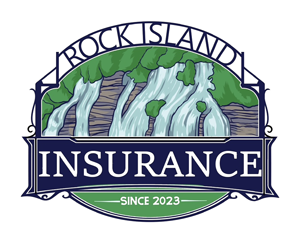Understanding Senior Life Insurance
As you age, the need for adequate financial protection becomes paramount. Life insurance offers a safety net for your loved ones, ensuring that they are financially secure in the event of your passing. For seniors, finding the right life insurance policy can be daunting, but understanding your options is key.
Types of Life Insurance for Seniors
Seniors have a range of life insurance options available, each designed to cater to different needs and circumstances. Here are the most common types:
Term Life Insurance
This policy provides coverage for a specific period, typically ranging from 10 to 30 years. It is often more affordable, making it an attractive option for seniors looking for basic coverage. However, once the term expires, the protection ends unless you convert it to a permanent policy.
Whole Life Insurance
Whole life insurance offers lifelong coverage, as long as premiums are paid. It also includes a cash value component that can grow over time, providing a potential source of funds during your lifetime. This policy tends to have higher premiums but offers more long-term benefits.
Universal Life Insurance
Universal life insurance combines the flexibility of adjustable premiums and death benefits with the cash value accumulation found in whole life policies. This option allows seniors to adjust their coverage as needs change.
Final Expense Insurance
This is designed to cover end-of-life expenses, such as funeral costs. Final expense insurance is generally easier to qualify for, making it a popular choice among seniors looking to alleviate the financial burden on their families.
Key Considerations for Seniors
When choosing life insurance as a senior, several factors should be considered:
Health Status
Your health significantly impacts your insurance options. Many insurers require a medical exam, which may make obtaining coverage more challenging if you have pre-existing conditions. However, there are options like guaranteed issue policies that do not require medical exams.
Financial Needs
Assess your financial situation and determine how much coverage your beneficiaries would need. Consider factors such as outstanding debts, living expenses, and future financial goals.
Premium Affordability
Choose a policy whose premiums fit comfortably within your budget. Ensure that the chosen policy will provide the coverage you need without causing financial strain.
Policy Riders
Explore riders that can enhance your policy, such as accelerated death benefits, which allow you to access a portion of your death benefit while still alive if terminally ill.
Frequently Asked Questions about Senior Life Insurance
Can seniors still get life insurance? Yes, seniors can secure life insurance, but options may vary based on health, age, and other factors.
What is the best type of insurance for seniors? The best type of insurance depends on individual needs and financial situations. Whole life and final expense insurance are popular choices among seniors.
How much life insurance do I need as a senior? This varies depending on personal circumstances. Generally, seniors should consider their debts, funeral costs, and living expenses to determine the necessary coverage.
Are there life insurance policies for seniors with health issues? Yes, there are policies specifically designed for seniors with health issues, including guaranteed issue and simplified issue plans.
Conclusion
Choosing the right life insurance policy as a senior is essential for securing peace of mind and financial stability for your loved ones. Consider your needs, preferences, and budget when making this important decision. At Rock Island Insurance, we specialize in providing personalized life insurance solutions for seniors in Warren, Dekalb, Coffee, Van Buren, and White Counties in Tennessee. Let us help you navigate the options and find the best coverage for your unique situation.

